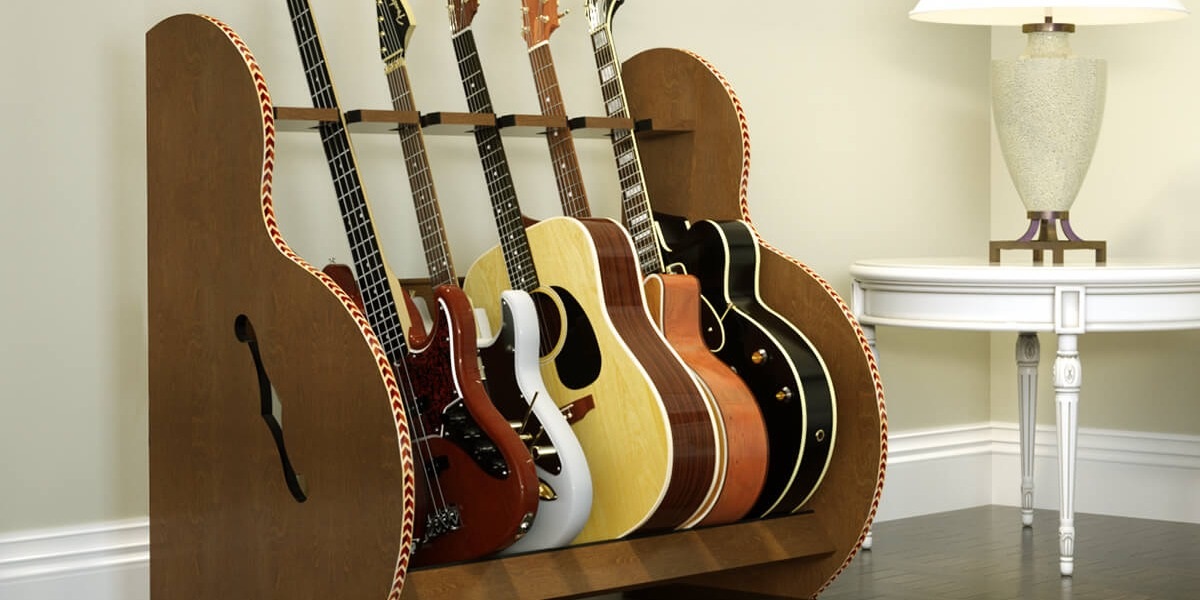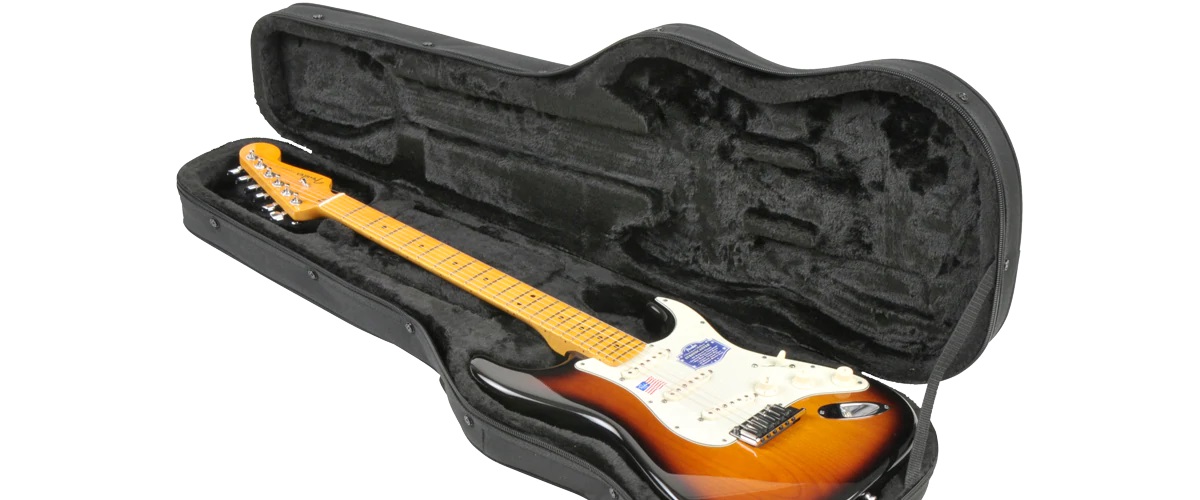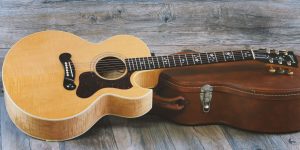Your guitar is a delicate musical instrument that needs to be properly stored in order to keep it in good condition.
Here are some tips on how to store your guitar:
Cool and dry place
Guitars need to be stored in a cool and dry place away from heat sources or direct sunlight. It is essential to ensure that guitars are not stored in humid conditions as this can cause the wood to warp and the strings to rust.
Guitar case
The good idea is to store the guitar in a case or bag.
- First, it protects your guitar from sunlight, humidity, and temperature changes.
- Second, it protects your guitar from different kinds of physical damage.
Bumps and scrapes can cause serious damage to your guitar, and a case will help prevent that. Third, it helps to keep your guitar clean. Dust and dirt can build up on your guitar over time, and a case will help keep it clean. Besides, using a case will help you keep your guitar strings, picks, and other accessories in one place to find them easily when you need them.

Safe place
Moreover, it is essential to store guitars in a safe place where other objects will not damage them. That means you need to ensure that guitars are stored so that they will not fall and cause damage to themselves or others. For example, you can hang them on a wall or on a guitar stand to keep them safe.
Pay attention that specialists don’t recommend hanging a guitar by its neck.
It can put undue stress on the neck of the guitar, which can lead to warping or even breakage over time. Additionally, hanging guitars by their necks can make it challenging to keep them in tune, as the strings will be under constant tension.
Keep it tuned
It is essential to keep them tuned, so they are ready to play when you are. Besides, an out-of-tune guitar can cause problems, as the strings may slip off the tuning pegs or break entirely.
How to carry the guitar safely?
One of the most important things to consider when traveling with a guitar is how to carry it safely. The best way to do it is to use a case, which will protect the instrument from knocks and bumps. If you don’t have a case, you can wrap the guitar in a soft blanket or towel for extra padding. At least make sure you support its neck and body properly.
It’s also essential to ensure the guitar is secure in the car. The best way to do this is to strap it into the back seat using a seatbelt or similar device. It will stop the guitar from sliding around during journeys and potentially getting damaged.

What guitar case is it better to choose?
When choosing a guitar case, some factors include the type of instrument you have, the level of protection you need, and your budget.
Some guitarists prefer hard cases that are typically more expensive than soft cases, but they offer better protection against impact damage. If you frequently travel with your guitar or plan to take it on airlines, a hard case is a good option.
Soft cases are a good choice for everyday use or for gigging musicians who need to be able to move quickly from one venue to the next.
When choosing a guitar case, it’s essential to find one that fits your instrument snugly. In a loose-fitting case, your guitar can shift around inside, leading to damage. Oppositely, if the case is too small, it will leave your guitar vulnerable to damage. So make sure to measure your guitar before purchasing a case. Check the dimensions of the case against the dimensions of your guitar.
When shopping for a guitar case, it’s essential to balance cost and quality.
We are supported by our audience. When you purchase through links on our site, we may earn an affiliate commission at no extra cost to you.
Our newsletter
* We will never send you spam or share your email with third parties












